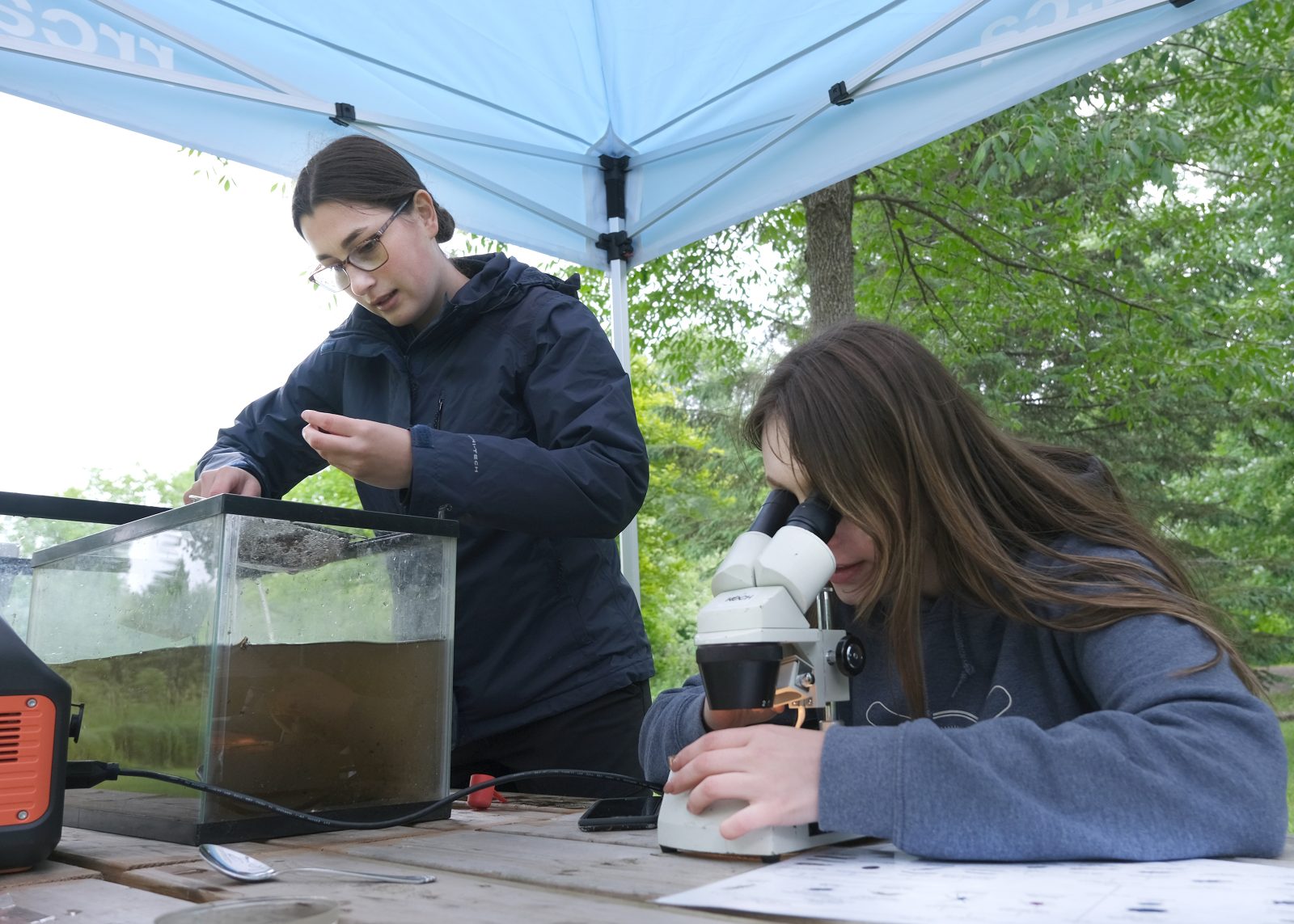The Raisin Region Conservation Authority’s (RRCA) Cooper Marsh Conservation Area is known for hosting hundreds of bird species, yet innumerable quantities of wriggling organisms can also be found silently swimming or hiding in the waters below the boardwalks and in other ponds and channels at the Marsh.
“Aquatic invertebrates, such as mayfly nymphs, scuds, midges and leeches can actually help scientists interpret the health of ecosystems such as Cooper Marsh Conservation Area,” says RRCA’s Jamie Would, who coordinates the Cooper Marsh Biodiversity Project. “These tiny creatures are excellent ecological indicators because they have varying levels of tolerance to pollution and other environmental conditions.”
Members of the public now have a chance to dive deeper into this macroscopic world, as the RRCA is partnering with the River Institute to offer a free invertebrate surveying workshop on Friday, August 19, from 9:30 a.m. to 12 p.m. at Cooper Marsh Conservation Area. As spaces are limited, pre-registration is required on the RRCA website at rrca.on.ca.
“Participants will have the opportunity to collect field samples, as well as identify invertebrates using proper protocols,” says River Institute Environmental Educator and Biologist, Lexy Harquail. “They will learn how to use D-nets and kick nets to sample aquatic invertebrates, as well as practical lab skills including how to use a microscope, pipette, and dichotomous key – a chart which uses a step-by-step series of choices based on observable traits to reach a positive identification.”
Data collected during the workshop will also be used by the RRCA as part of its Cooper Marsh Biodiversity Project, a multi-year effort to protect and enhance the Marsh’s rich biodiversity through habitat planting and enhancement, invasive species control, biodiversity monitoring, and outreach. This project was undertaken with the financial support of the Nature Smart Climate Solutions Fund, a Government of Canada’s Department of Environment and Climate Change program in partnership with Conservation Ontario. Funding for the project was also provided by Ontario Power Generation.
For more information visit rrca.on.ca or contact (613) 938-3611 or info@rrca.on.ca.



